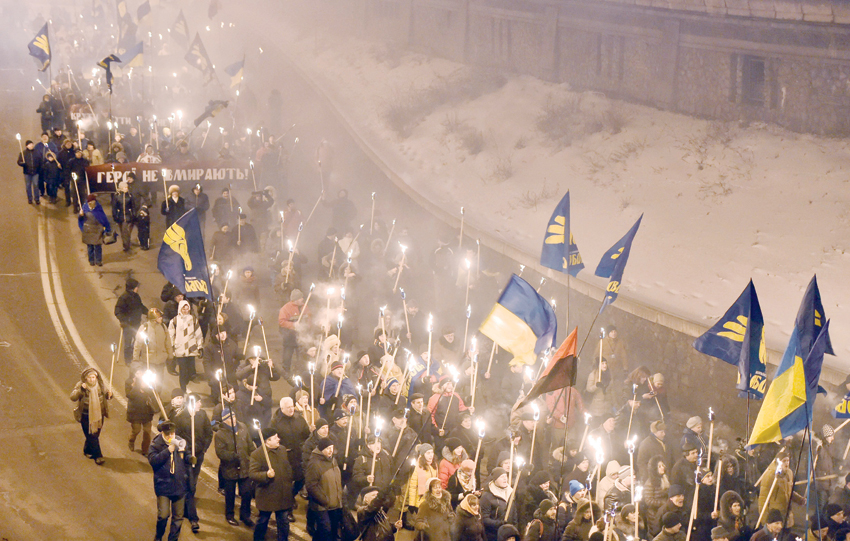

MOSCOW: The conflict in Ukraine’s two eastern-most regions between Russian-aligned rebels and the Ukrainian military is entering its third year with no end in sight.
Ukrainian President Petro Poroshenko and German Chancellor Angela Merkel were expected in Berlin to discuss further steps to revitalise a ceasefire for eastern Ukraine that has largely failed, as violations are reported on an almost daily basis. The rebellion erupted in early 2014 following the ouster of Ukraine’s pro-Russian president amid a protest movement calling for closer ties with the West.
Russia, which denounced the ouster as a Western-backed coup, responded by annexing Ukraine’s southern Crimea region — the site of a major Russian naval base — and supporting the rebellion in Ukraine’s two eastern regions bordering Russia — Donetsk and Luhansk.
Russia is thought to be arming the rebellion, despite Moscow denying any military involvement. According to the UN, the conflict has claimed around 10,000 lives.
In February 2015, Poroshenko and Russian President Vladimir Putin signed a ceasefire agreement in Minsk meant to strengthen an earlier pact between lower-ranking Ukrainian and Russian officials, as well as representatives of the rebels.
The second deal, commonly known as Minsk II, was partially brokered by German Chancellor Angela Merkel, as well as Belarusian President Alexander Lukashenko and French President Francois Hollande.
The deal was viewed more optimistically than the earlier Minsk Protocol because of the status of the officials who signed it.
The package of measures under Minsk II includes an unconditional ceasefire and for both sides to pull out heavy weapons from the frontline in eastern Ukraine.
Under Minsk II, Kiev should also regain control of the border, prisoners of war are to be released, and Ukraine should enact constitutional reform aimed at granting more autonomy to the separatist regions.
The overall implementation of the accord has been less than successful: The withdrawal of heavy weapons is only partially completed, observers report regular violations of the ceasefire, and the prisoner exchange has stalled.
Kiev has also dragged its feet on granting more autonomy to separatist areas, and Russia has also not handed control of the border to the Ukrainian authorities.
Ukraine should be wary of a looming fatigue among Western government’s regarding their financial support for the country if it fails to implement the terms of the ceasefire agreement and root outentrenched corruption in its government, analysts told dpa last month.
The EU’s European Court of Auditors noted in early December that”Ukraine’s poor track record on high-level corruption is jeopardising its international rescue package.”
“Despite reform efforts, Ukraine is still perceived as the most corrupt country in Europe,” the EU court said, questioning whether to continue allocating billions of euros in financial assistance to Kiev. — dpa
Oman Observer is now on the WhatsApp channel. Click here



